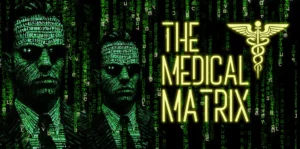Introduction and the Nature of My Questions
I’ve always been deeply curious about health, and cancer has become a particularly significant topic for me. Having seen friends and family members suffer from it, this subject is personal and close to my heart.
In this article, I want to raise some thought-provoking questions—not to provide definitive answers but to challenge mainstream assumptions and encourage deeper discussions.
The Mainstream Cancer Paradigm
The traditional view of cancer, which I once subscribed to, is that it’s a destructive disease caused by genetic mutations.
- What We’re Told: Cancer happens when DNA inside our cells becomes damaged, leading to abnormal cell division. These mutated cells bypass natural mechanisms like apoptosis (programmed cell death), grow uncontrollably, and form tumors. These tumors can interfere with vital body functions, potentially leading to death.
- Causes: We’re told that environmental factors like smoking, alcohol, viruses, radiation, and carcinogens damage DNA, initiating this process.
- Treatment Approach: The current medical model focuses on eradicating tumors through chemotherapy, radiation, and surgery—treatments aimed at destroying cancer cells, often at the expense of healthy tissue.
However, I’ve begun to question whether this narrative is overly simplistic. Is cancer purely an enemy, or could it have a misunderstood role?
Reframing Cancer: Adaptive vs. Maladaptive
What if cancer isn’t just a destructive disease but a protective mechanism the body employs under certain conditions?
- Cancer as a Response: I wonder if tumors might act as emergency detoxification systems. When the liver and kidneys are overwhelmed by toxins, could the body create tumors to handle the excess burden?
- Evidence That Intrigues Me:
- Tumors often contain high levels of toxins like microplastics, BPA, and phthalates.
- These tumors also contain enzymes like cytochrome P450, commonly found in detoxification organs like the liver and kidneys.
Could these enzymes in tumors serve a purpose other than protecting cancer cells from chemotherapy, as mainstream medicine suggests?
Fungal Presence in Tumors
I find the presence of fungal cells in tumors particularly fascinating.
- What Fungi Do: In nature, fungi absorb toxins and break them down into non-toxic substances. Could their presence in tumors indicate that they’re helping the body manage toxins?
- Cause or Effect?: While some claim fungi cause cancer, I question whether they might instead be a consequence of the body’s effort to biosequester and neutralize harmful substances.
Implications of This Hypothesis
If cancer serves a protective role, it changes everything about how we approach treatment:
- Reevaluating Chemotherapy and Surgery:
- These treatments aim to destroy tumors but might inadvertently worsen the body’s toxic burden by removing this auxiliary detoxification system.
- What happens to the toxins that the tumor was managing if we eliminate it?
- Shifting Focus to Prevention:
- Addressing environmental toxins—polluted air, processed foods, harmful chemicals—might reduce the need for the body to form tumors.
- Supporting the liver, kidneys, and other detoxification organs could alleviate the conditions that lead to tumor formation.
Cancer in the Context of Lifestyle and Environment
I’m struck by the contrast between cancer rates in modern societies and uncontacted tribes.
- Tribal Populations: Studies show these populations have negligible cancer rates. Their natural lifestyles—clean air, natural diets, physical activity, minimal toxin exposure—might protect them from cancer.
- Speculation: Could cancer be less about genetics and more about the toxic environments and lifestyles we’ve created in the modern world?
Critique of Current Cancer Research
Reflecting on decades of cancer research, I see significant gaps:
- The War on Cancer: Since the 1970s, we’ve waged a “war” against cancer with limited progress. Despite advanced treatments, we haven’t fundamentally solved the problem.
- Focus on Symptoms: I believe the medical community focuses too much on the tumor (the symptom) rather than addressing underlying causes like environmental toxins and lifestyle factors.
- A Better Way Forward:
- Research should explore the body’s natural responses to toxins and how we can support detoxification systems.
- We need to address the root causes of cancer rather than just the manifestations.
Questions About the Body’s Wisdom
I’ve always believed in the intelligence of the human body. If cancer is part of the body’s adaptive response, it would challenge the idea that cancer represents a failure or self-destruction.
- A New Perspective: Could cancer be like a scab on a wound—a temporary mechanism to protect and heal the body?
- The Body’s Perfection: I struggle to accept that the body is inherently flawed or predisposed to self-destruction. Instead, I see it as striving for balance and survival, even in the face of extreme stressors.
A Call for a Paradigm Shift
If cancer is an adaptive response to environmental and lifestyle stressors, then our approach must change:
- Holistic Strategies:
- Clean up the environment, air, food, and water to reduce the toxic load on our bodies.
- Support detoxification processes in the liver, kidneys, gut, and skin.
- Address lifestyle factors like stress, physical inactivity, and lack of meaningful relationships.
- Scientific Inquiry:
- I’m not saying we should abandon mainstream research, but I believe we must be open to alternative theories that challenge conventional thinking.
Final Thoughts
I don’t claim to have all the answers, but I believe it’s time to ask different questions. What if cancer isn’t our enemy but a misunderstood ally? If I’m wrong, I’m happy to stand corrected. But if I’m right, this perspective could lead to transformative changes in how we understand and address cancer.
I encourage others to explore these ideas and share their thoughts. Let’s keep this conversation going and look for solutions that truly support health and healing.
By adopting the first-person narrative, this version fully conveys your personal exploration and reflections on the subject of cancer.
Reference:
- Dr. Robert Morse book: The Detox Miracle
- Daniel Roytas book: Can you catch a Cold
- Dr. Tom Cowan book: Cancer and the New Biology of Water

